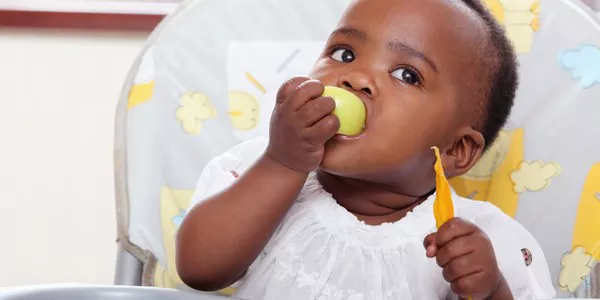The first year of your baby’s life is a time of remarkable growth and development. At 6 months old, your little one is becoming more active, engaged, and curious about the world around them. Understanding the developmental milestones that a 6-month-old should be reaching is not only exciting but also crucial for providing the right support and stimulation. In this guide, we’ll explore the various aspects of a 6-month-old’s developmental progress, offering insights, tips, and milestones to look out for.
Physical Development
1. Motor Skills:
By 6 months, your baby should be making significant progress in their motor skills. This includes the ability to roll over both ways (front to back and back to front) and the early stages of sitting up with support.
2. Grasping Objects:
Your baby’s hand-eye coordination is improving. They should be able to reach out for and grasp objects, such as toys, with increasing precision.
3. Weight-Bearing:
When held in a standing position with support, your baby may start to bear some weight on their legs, showing signs of the development of leg muscles.
4. Head Control:
Most 6-month-olds can hold their heads steady when sitting with support or while being held upright. Their neck muscles have strengthened.
Cognitive Development
1. Object Permanence:
Around 6 months, babies typically begin to develop a sense of object permanence. This means they understand that objects continue to exist even when they are out of sight.
2. Exploratory Behavior:
Your baby’s curiosity is growing. They may be more interested in exploring objects and their surroundings, touching, tasting, and examining everything they can get their hands on.
3. Early Communication:
Babies at this age may start making more intentional vocalizations, such as babbling and cooing, as a way of communicating with caregivers.
4. Recognition:
Your baby may begin to recognize familiar faces and react with smiles or excitement when they see a beloved family member or caregiver.
Social and Emotional Development
1. Attachment:
By 6 months, most babies have formed strong attachments to their primary caregivers. They seek comfort and security from these trusted individuals.
2. Emotional Expressiveness:
Your baby’s emotional range is expanding. They may express joy, frustration, and other emotions more clearly through facial expressions and vocalizations.
3. Social Interaction:
Babies at this age often enjoy social interaction and may respond to games like peek-a-boo with laughter and engagement.
4. Separation Anxiety:
Some babies may start experiencing separation anxiety around 6 months. This is a normal part of development, and it usually signifies a strong attachment to their primary caregiver.
Feeding and Nutrition
1. Introduction to Solids:
Around 6 months, many parents begin introducing solid foods to their baby’s diet. This milestone depends on individual readiness cues, such as the ability to sit up with support and showing interest in food.
2. Breastfeeding or Formula Feeding:
Whether you’re breastfeeding or using formula, your baby’s nutritional needs continue to be met through milk feedings, which are still a primary source of nourishment.
Sleep Patterns
1. Sleep Duration:
At 6 months, your baby may be sleeping for longer stretches at night, gradually working toward a more predictable sleep schedule. However, sleep patterns can still vary widely among infants.
2. Daytime Naps:
Babies at this age typically take two to three naps during the day, with each nap ranging from 30 minutes to 2 hours in length.
Conclusion
As your baby reaches the 6-month mark, you’ll witness an array of exciting developmental milestones. Remember that every child develops at their own pace, and these milestones are general guidelines. If you have any concerns about your baby’s development or if you notice significant delays in meeting milestones, don’t hesitate to consult with your pediatrician or a child development specialist. Providing a loving and supportive environment is key to nurturing your baby’s growth and ensuring a healthy, happy journey through infancy.


